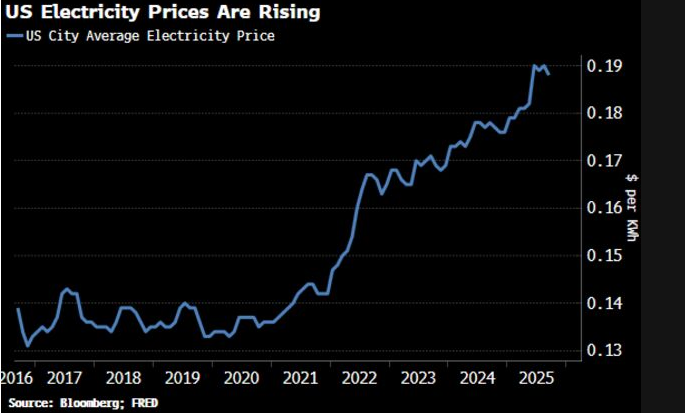Oct 30, 2025
The AI boom is far from over. It’s getting bigger. The demands for power and cooling will keep growing. Caterpillar rose the most in 16 years on Wednesday because of demand for power-generation equipment for AI data centers.
The message from Wednesday’s Microsoft and Alphabet calls is that they’re not investing in the hope of a future payoff — they’ve got contracts signed and now they need to build the capacity to meet the contracts. They’re still playing catch-up and both companies said last night that they’re falling behind. MSFT CFO Amy Hood was explicit that she thought they would have caught up by now, but haven’t. For the companies, it looks less like an “if we build it they will come” situation and more like “they’re here, we’ve run out of space, and we’re building as fast as we can but more people keep turning up.”
A separate question is then whether those end users are able to make money off the new tech. So far the indications are that, yes, companies are buying more AI capacity because it makes their staff more productive. But there will be diminishing returns.
Telecoms companies discovered that, cool as their product seemed back in the early 2000s, there’s a limit to how much people will pay for more and faster downloads. Providers end up competing on cost. The cloud giants will find that the price of generating an extra unit of compute keeps going up the larger they get and eventually will equal the marginal price they can earn from providing it. The big question is how long that takes, and it seems it’ll be a while.
Nvidia CEO Jensen Huang’s speech on Tuesday made clear that we’re not near that point yet. The company has visibility into over $500 billion of orders for its current-generation Blackwell and next-generation Rubin chips over the next five quarters. And now he’s started talking about quantum computing.
Meta, meanwhile, sank about 12% Thursday as markets reacted to its plan to issue as much as $25 billion of debt to fund its AI push. Unlike, Microsoft and Alphabet, Meta’s core business is not selling AI, but advertising. It uses AI to enhance its ad sales, but investors seem unconvinced by its strategy of spending heavily in its own AI models to do so.
At 19.4 times blended forward earnings expectations, Meta is far the cheapest of the big US tech stocks and cheaper than the S&P 500 itself. It’s almost as cheap as the S&P 500 Value index at 18.7 times.

This has inflation potential, but it comes as multiple other signs of price growth are becoming increasingly difficult to ignore, from food prices to freight. At some point the Fed will have to take note, but Treasuries might take matters into their own hands first.
